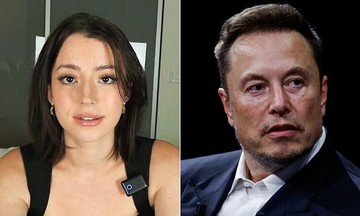The growing demand for audiobooks is pushing companies towards AI narration, a faster and cheaper production method. In May, Audible, Amazon's audiobook platform, allowed authors and publishers to choose from over 100 AI voices narrating in languages like English, Spanish, French, and Italian. Earlier, Spotify announced its acceptance of AI-narrated audiobooks to ease creation challenges and reach wider audiences across various platforms.
According to Audible, the use of AI voices is intended to supplement, not replace, human narrators. In the US, to enhance audiobook quality, the platform is also experimenting with creating voice clones of established narrators.
Australian author Hannah Kent, who sued Meta for unauthorized use of copyrighted works to train AI systems, expressed curiosity about Audible's move. She admitted her initial reaction to AI in creative spaces was "rejection and outrage." However, she now anticipates its application in translation and multilingual text reading.
 |
Listeners experience audiobooks at the Tet At Ty book street (TP HCM). Photo: Quynh Tran |
Listeners experience audiobooks at the Tet At Ty book street (TP HCM). Photo: Quynh Tran
However, this trend raises concerns about job displacement. In a 2024 submission to a parliamentary committee, the Australian Association of Voice Actors stated that 5,000 voice acting jobs in Australia are at risk. Simon Kennedy, the association's president, emphasized the ongoing struggle for fair narrator compensation in Australia.
Many artists also question the transparency and quality of AI voices. Annabelle Tudo, who has narrated 48 books, remains skeptical about AI's ability to perform this job effectively. She believes voice conveys emotion, creating a connection between reader and listener. Furthermore, she argues, certain emotions and sounds, such as those in a "birthing scene," are impossible for AI to replicate.
Dorje Swallow, the primary narrator for bestselling crime novels by Australian author Chris Hammer, believes AI narration is a method created by those who "don't understand the value, technique, and skill" required for audiobook production. He said, "We've worked very hard to get to where we are, and the idea that you can press a button and get something of similar quality, or good enough, is laughable,".
Simon Kennedy called Audible's announcement a "pretty dumb move." Regarding the opportunity for narrators to clone their voices, he believes they have the right to participate, but shouldn't expect equivalent pay and must accept the risk of brand dilution, "becoming a mass-produced robotic voice that listeners will quickly tire of,".
He also highlighted the lack of AI regulations in Australia: "There are no laws preventing the exploitation and fair use of data, cloned voices without consent, deepfakes, watermarking of AI-generated content, or laws requiring transparency in AI training," Kennedy said.
Khanh Linh (via The Guardian)











